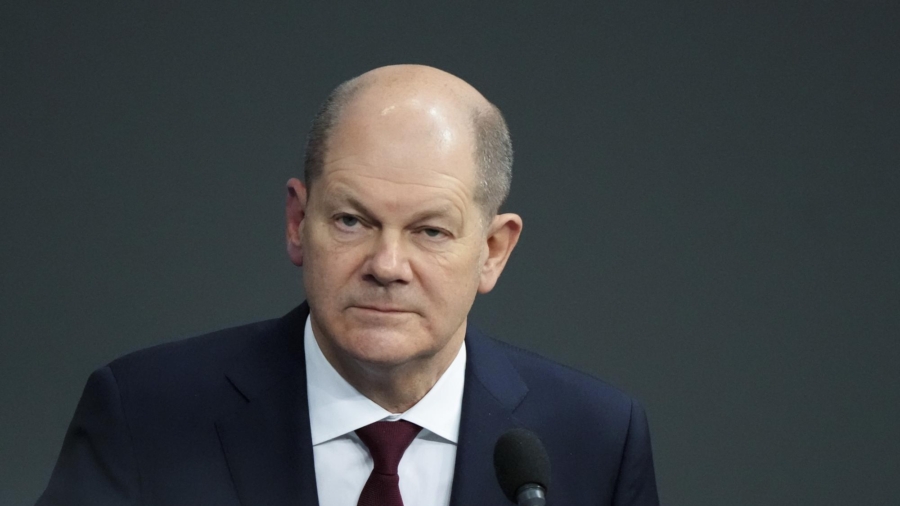German Chancellor Olaf Scholz told parliament on Wednesday that COVID-19 vaccinations should become mandatory for all adults in the country as he accused the unvaccinated of putting others at risk.
“I, for one, consider it necessary and will actively campaign for it,” Scholz told lawmakers in Berlin, asserting that getting the shot is not a personal decision since it has consequences for the entire society.
“There’s no decision you make just for yourself, and that’s why mandatory vaccination is important,” he said. “With the decision not to get vaccinated, one ultimately is not just making a decision for oneself, but also for 80 million others.”
German lawmakers are expected to launch debates on a bill making the shots mandatory at the end of January, The Associated Press reported. The country already passed a law in December that requires staff at hospitals and nursing homes to get vaccinated against the CCP (Chinese Communist Party) virus from mid-March.
Frank-Walter Steinmeier, the president of Germany, told a roundtable debate with citizens on the issue that “the exceptional situation of a pandemic increases the pressure for the state to act.”

“A vaccine mandate means a debate mandate,” said Steinmeier, whose role in the country is largely ceremonial. He urged lawmakers involved to show “respect for other positions.”
The president also dismissed accusations that the CCP virus pandemic in Germany has turned the country into a dictatorship as he brandished the claims as “complete nonsense.”
According to the latest data by the Robert Koch Institute, a German federal agency responsible for disease control and prevention, more than 72 percent of the population is fully vaccinated, while over 44 percent have had a booster shot.
Though the European nation is showing promising vaccination rates—CCP virus infections continue to soar in the country and more measures such as mandatory vaccinations are needed, Scholz claimed. The chancellor’s government aims to reach a vaccination goal of 80 percent.
For weeks, protests have broken out across Germany as residents faced strict restrictions amid a new COVID-19 wave driven by the Omicron variant.

Over the past few months, hundreds of thousands of people have taken to the streets of Germany as the government repeatedly enforced new COVID-19 rules. Current measures include limiting hospitality venue access to only those who have received a booster shot, are considered recovered from the CCP virus, or are able to show a negative test.
The rules have been criticized by the German Hotel and Restaurant Association, which labeled the government’s new restrictions as a “disaster.”
“The introduction of 2G-plus access rules across the board is a disaster for many businesses,” said Ingrid Hartges, the association’s chief executive, DW reported.
Hartges urged the government to make assistance available to the hospitality sector harmed by the restrictions, explaining that less than half of the country’s population has received a booster shot.


